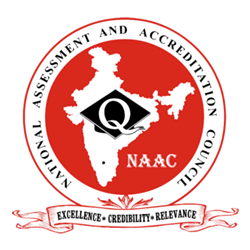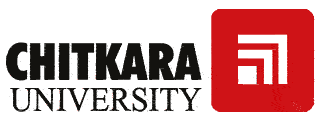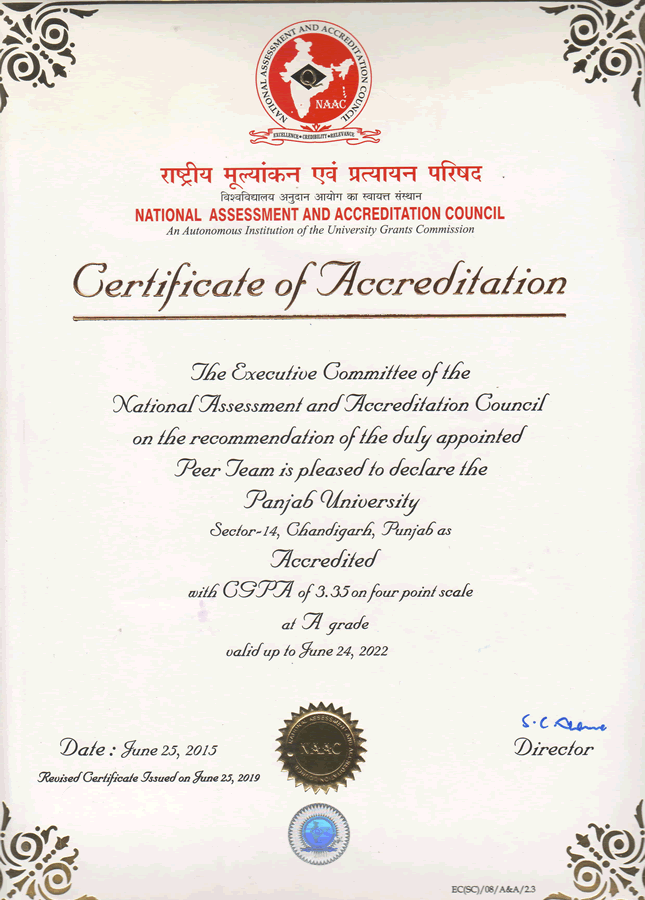« Top 100 Worldwide Universities Granted U.S. Utility Patents in 2021 Announced | Main | Keds and Altuzarra Debut Collaboration at New York Fashion Week: The Shows »
September 11, 2022
Chitkara University, Chandigarh, India, organizes a seminar on Quality Assurance in Higher Education with National Assessment and Accreditation Council (NAAC) and Tata Tele Business Service.


Chandigarh, India, September 07, 2022 — The Accreditation and Quality Assurance Cell at Chitkara University, Punjab, organized a two-day National Seminar on Quality Assurance in Higher Education “QAHE-2022”. Education experts deliberated on National Education Policy (NEP) 2020, focusing on Quality Assurance in Higher Education.
• Chitkara University organized the National Seminar in association with the National Assessment and Accreditation Council (NAAC) and Tata Tele Business Services.
Eminent speakers in the seminar included Dr. R. K. Goel, Director-IQAC, Punjabi University, Patiala, Prof. (Retd.) L. N. Mittal, Formerly Professor at NITTTR, Chandigarh, Dr. Kawaljeet Singh, Director, University Computer Centre, Punjabi University, Patiala, Dr. Sandhir Sharma, Dean, Chitkara Business School; and Dr. V. K. Jadon, Dean-Academics, CUIET (Applied Engineering), Chitkara University, Punjab.
A souvenir with 91 research articles from research scholars and faculty members on “Quality Assurance in Higher Education” was also launched.
Dr. Madhu Chitkara, Pro-Chancellor of Chitkara University, said that we at Chitkara always focus on implementing the NEP into the modern education system to meet the Industry 5.0 requirements. She gave her valuable insights about quality in higher education. She said that the most influential factor is human capital, expressed in the knowledge, skills, creative abilities, and moral attributes of individuals in society. In addition, policymakers increasingly view higher education institutions as economic engines that ensure knowledge production through research and innovation. She also shared her views about the quality of higher education. She said that education is now an instrument of change, as change is happening quicker than in older times.
Chitkara university focuses on multidisciplinary research and consultancy. So far, it has published 4000+ Scopus articles with more than 14000 citations. In addition, it has applied for 1800 patents, out of which 300 have been published and 150 granted.
All the presentations delivered in the seminar were focused on the impact of accreditation agencies on the education system, how the education system transitioned itself to an online education system during COVID-19, what are the after effects, and how NEP can contribute to strengthening the Indian education system.
• Kurukshetra University organizes a workshop on the NAAC assessment and accreditation process
In another similar event, Haryana Higher Education Department and Kurukshetra University organized a one-day state-level workshop on the “NAAC assessment and accreditation process” at the Kurukshetra University auditorium hall.
The Principal Secretary, Higher and Technical Education Department, Haryana, said that a good NAAC (National Assessment and Accreditation Council) rating was essential for an institution to build a promising student future. Kurukshetra University Vice-Chancellor Prof Som Nath Sachdeva said the NAAC ranking determined the quality of education, research standard, the effectiveness of the teaching-learning process, and the facilities offered to students by an institute.
Dr. Pratibha Singh, Deputy Adviser, NAAC, New Delhi, conducted the workshop for participants.
• Panjab University Chandigarh no longer NAAC accredited
The NAAC Accreditation of an institution in the region, Panjab University Chandigarh, has expired.
NAAC Administration’s latest ‘Accreditation Status of Universities’ shows that that institution has not initiated the accreditation renewal application process. Accordingly, it is no longer NAAC accredited.

The University Grants Commission (UGC) had, through a gazette notification dated January 19, 2013, made it mandatory for Higher Educational Institutions (HEIs) to undergo accreditation. Accordingly, accreditation will now be required for higher education institutions (HEIs) to be eligible to receive grants and other financial assistance from the Central Government.
NAAC accreditation identifies the institute’s quality in terms of its education, research, faculty, and infrastructure, gives students confidence in selecting a quality institution, and provides instant credibility to a Higher Education Institution.
Sources: Chitkara University; NAAC; Agencies.
|GlobalGiants.Com|







Edited & Posted by the Editor | 9:51 PM | Link to this Post







